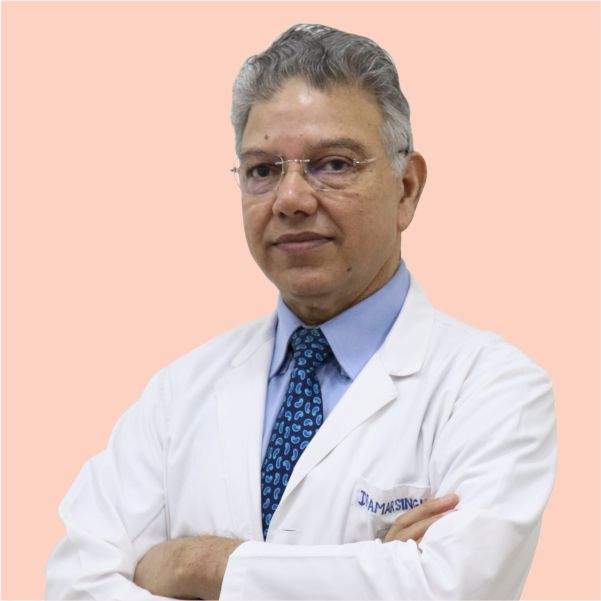Interventional Cardiology is a specialized branch of Cardiology that employs minimally invasive procedures to diagnose and treat various heart conditions. Through the use of catheters and other specialized instruments, Interventional Cardiologists can access the heart and surrounding blood vessels without the need for open surgery. This innovative field has revolutionized the management of cardiovascular diseases, offering patients effective treatment options with shorter recovery times and reduced risks.
Common diseases that the department treats
- Coronary Artery Disease (CAD): Individuals with significant blockages in their coronary arteries may be candidates for procedures like angioplasty and stenting. These techniques can help restore blood flow to the heart muscle.
- Acute Coronary Syndromes (ACS): Patients experiencing unstable angina or heart attacks (myocardial infarctions) may benefit from immediate intervention to open blocked arteries and restore blood flow.
- Heart Valve Disorders: Some patients with valve conditions, such as aortic stenosis, may be candidates for transcatheter valve replacement or repair procedures. These techniques can be less invasive than traditional open-heart surgery.
- Peripheral Artery Disease (PAD): Interventional cardiology can also address blockages in the arteries of the legs and other peripheral areas, improving blood flow and reducing symptoms like leg pain and cramping.
- Congenital Heart Defects: In certain cases, particularly with specific congenital heart conditions, interventional procedures can be used to repair or improve the function of the heart.
- Structural Heart Conditions: This category includes conditions like atrial septal defects (ASDs), patent foramen ovale (PFO), and ventricular septal defects (VSDs), which may be amenable to repair or closure through interventional techniques.
- Arrhythmias: Some types of arrhythmias can be treated through procedures like catheter ablation, which involves using radiofrequency energy to correct abnormal electrical pathways in the heart.
- Cardiogenic Shock: In severe cases of heart failure or acute heart attack, patients in cardiogenic shock may benefit from advanced interventional procedures to stabilize their condition.
- High-Risk Patients: For individuals who are considered high-risk candidates for traditional open-heart surgery due to factors like age or other health conditions, interventional cardiology may provide a less invasive alternative.
It's important to note that the best candidates for interventional cardiology procedures are determined on an individual basis. A thorough evaluation by a cardiologist or an Interventional Cardiologist is essential to assess the specific condition, overall health, and any unique factors that may influence the treatment approach.
Common Procedures in Interventional Cardiology
- Angioplasty and Stenting: This is one of the most widely performed interventional procedures. It involves threading a catheter with a deflated balloon into a narrowed or blocked artery. Once in position, the balloon is inflated to compress fatty deposits (atherosclerosis) and widen the artery. In many cases, a stent (a small mesh tube) is then placed to help keep the artery open.
- Angiography: It is a medical imaging technique that uses X-rays to visualize blood vessels in the body, helping diagnose and treat various vascular conditions such as blockages or aneurysms.
- Coronary Artery Stenting: This procedure specifically targets the coronary arteries, which supply blood to the heart muscle. It is a highly effective treatment for coronary artery disease, helping to improve blood flow and relieve chest pain (angina).
- Atherectomy: This involves using a specialized catheter with a rotating blade or laser to remove plaque from the arterial walls. It can be particularly useful in cases where the plaque is hardened and resistant to angioplasty.
- Balloon Valvuloplasty: This procedure is used to treat certain heart valve conditions, such as aortic stenosis. A catheter with a balloon at its tip is positioned in the narrowed valve and then inflated to widen the valve opening.
- Closure of Structural Defects: Through interventional techniques, certain structural defects in the heart can be repaired without the need for open surgery. This includes procedures like atrial septal defect (ASD) closure and patent foramen ovale (PFO) closure.
- Percutaneous Coronary Intervention (PCI): This umbrella term encompasses a range of procedures to treat coronary artery disease. It may involve angioplasty, stenting, or a combination of techniques.
Advantages of Interventional Cardiology
- Minimally Invasive: One of the primary advantages of Interventional Cardiology is that it avoids the need for traditional open-heart surgery. Instead, procedures are performed through small incisions, reducing trauma to the body.
- Shorter Recovery Times: Patients who undergo interventional procedures typically experience shorter hospital stays and faster recovery times compared to those who have open-heart surgery.
- Reduced Risk of Complications: Because interventional procedures are less invasive, they generally carry a lower risk of complications, such as infection or bleeding, when compared to surgical interventions.
- Improved Quality of Life: Many interventional procedures can provide significant relief from symptoms, such as chest pain or shortness of breath, leading to an improved quality of life for patients.
- Less Pain and Discomfort: Due to the minimally invasive nature of interventional procedures, patients often experience less pain and discomfort during and after the intervention.
While Interventional Cardiology offers numerous benefits, it is not suitable for all heart conditions. Some cases may still require traditional surgery for optimal outcomes. Additionally, expertise in interventional techniques is crucial for ensuring successful procedures.
In conclusion, Interventional Cardiology represents a remarkable advancement in the field of cardiovascular medicine. By utilizing minimally invasive techniques, interventional cardiologists can effectively diagnose and treat a wide range of heart conditions, offering patients improved outcomes and a higher quality of life. As technology continues to advance, the future of interventional cardiology holds great promise for further improving the care and treatment of individuals with cardiovascular diseases.
Call 011-42888888 to book an appointment with a specialist at Sri Balaji Action Medical Institute.




